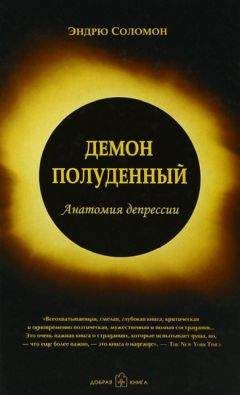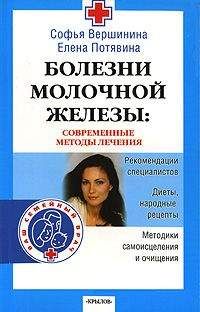Империя депрессии. Глобальная история разрушительной болезни - Садовски Джонатан
Биография Джейкобсон взята из книги: Brenda Maddox, Freud’s Wizard: Ernest Jones and the Transformation of Psychoanalysis (Cambridge: Da Capo Press, 2007, originally published 2006), 24–5. Для углубления в тему клинического опыта депрессии поколения Джейкобсон и последующих смотрите: Arieti and Bemporad, Severe and Mild Depression, 54–5.
275
Edith Jacobson, Depression: Comparative Studies of Normal, Neurotic, and Psychotic Conditions (Madison: International Universities Press, 1971).
276
Rosenfeld, An Investigation into the Psychoanalytic Theory of Depression, 114.
277
Существует множество рассказов о взаимоотношениях Фрейда и Юнга. Одно из лучших недавних обсуждений: George Makari Revolution in Mind: The Creation of Psychoanalysis.
278
Исключительно депрессии Юнг не посвятил ни одну из своих книг или статей. Информация рассредоточена по всем его работам. Я во многом полагался на: W. Steinberg, Depression: A Discussion of Jung’s Ideas, Journal of Analytical Psychology 34 (1989) 339–52.
279
David Karp, Is It Me or My Meds? Living with Antidepressants Cambridge: Harvard University Press, 2006), 196.
280
Gary Greenberg, Manufacturing Depression: The Secret History of a Modern Disease (New York: Simon and Schuster, 2010), 149–50.
281
Elliot S. Valenstein, Blaming the Brain: The Truth About Drugs and Mental Health (New York: The Free Press, 1998), 11.
282
Silvano Arieti and Jules Bemporad, The Psychological Organization of Depression), American Journal of Psychiatry 137, (November 1980) 1360–5.
283
Nancy McWilliams, Psychoanalytic Diagnosis: Understanding Personality Structure in the Clinical Process (New York: The Guilford Press, 1994), 229; 240. Ее книга задумывалась как приложение к DSM-III, чью атеоретическую природу она одобряла, поскольку предполагала стандартизацию психиатрии. Историки часто заявляют, что психоаналитики резко раскритиковали справочник DSM-III; поддержка МакУильямс – на стр. vii. Другой пример психоаналитического признания ценности лекарственного лечения смотрите: Busch et al., Psychodynamic Treatment of Depression.
284
John Bowlby, Attachment and Loss, Volume III: Loss (New York: Basic Books, 1980), 261.
285
John Bowlby, Attachment and Loss, Volume III: Loss, 247–8.
286
Silvano Arieti and Jules Bemporad, Severe and Mild Depression: The Psychotherapeutic Approach (New York: Basic Books, 1978), 4–5.
287
Silvano Arieti and Jules Bemporad, Severe and Mild Depression: The Psychotherapeutic Approach, 128.
288
Busch et al., Psychodynamic Treatment of Depression, 3–5.
289
Julia Kristeva, Black Sun: Depression and Melancholia (New York: Leon S. Roudiez, trans., Columbia University Press, 1989, originally published 1987), 3–94.
290
Детальное освещение этих проблем смотрите в главе 4.
291
McWilliams, Psychoanalytic Diagnosis, 239.
292
Кристеву обвиняли в шпионаже в пользу коммунистического правительства Болгарии, что она отрицает. Я не изучал доказательства этих обвинений сколько-нибудь пристально или обстоятельно, но, судя по тому, что я видел, они имеют под собой мало оснований.
293
Матрицид (матереубийство) – термин, придуманный и используемый криминологами, социологами и другими специалистами для описания акта убийства собственной матери. – Прим. ред.
294
Джулиана Скьезари предоставляет критическое изложение теории депрессии Кристевой в: The Gendering of Melancholia, 77–93. Скьезари рассматривает работу Кристевой как обвиняющую матерей, следовательно, антифеминистскую, – прочтение, которое я не разделяю. Также Скьезари считает то, что Кристева была сторонницей лечения литием, «внушающим беспокойство», но не поясняет почему (The Gendering of Melancholia, 78).
295
Mark Solms, The Brain and the Inner World: An Introduction to the Neuroscience of the Subjective Experience (New York: Other Press, 2003).
296
Социальная дезадаптация – частичная или полная утрата человеком способности приспосабливаться к условиям социальной среды. – Прим. ред.
297
Margaret R. Zellner, Douglas F. Watt, Mark Solms, and Jaak Panskepp, Affective Neuroscientific and Neuropsychoanalytic Approaches to Two Intractable Problems: Why Depression Feels So Bad and What Addicts Really Want, Neuroscience Biobehavioral Reviews 35 (2011) 2000–8.
298
Otto F. Kernberg, An Integrated Theory of Depression, Neuropsychoanalysis 11 (2009) 76–80.
299
Энн Харрингтон утверждает, что трициклики ей помогли. Гейл Хорнстайн говорит, что почти не ощутила эффекта от препаратов. Harrington, Mind Fixers, 197; Gail A. Hornstein, To Redeem One Person is to Redeem the World: The Life of Frieda Fromm-Reichmann (New York: The Free Press, 2000), 384.
300
Sandra G. Boodman, A Horrible Place, A Wonderful Place, The Washington Post, October 8, 1989, https://www.washingtonpost.com/archive/lifestyle/magazine/1989/10/08/a-horrible-place-a-wonderful-place/ee4d7572–7ac0–4159-baf8-e8112a983e50/, accessed October 9, 2019.
301
Harrington, Mind Fixers, 197.
302
Peter D. Kramer, Ordinarily Well: The Case for Antidepressants (New York: Farrar, Straus and Giroux, 2016), 44–5.
303
Если верить Хорнстайн, общий подход к лечению и атмосфера в «Сильвер Хилл» были куда гуманнее. Hornstein, To Redeem One Person is to Redeem the World, 384–5.
304
Daniel Barron, The Rise of Evidence-Based Psychiatry, Scientific American on-line, February 28, 2017, https://blogs.scientificamerican.com/guest-blog/the-rise-of-evidence-based-psychiatry/, accessed May 8, 2019.
305
Hornstein, To Redeem One Person is to Redeem the World, 386; Healy, The Antidepressant Era, 246–8.
306
Hornstein, To Redeem One Person is to Redeem the World, 385–6.
307
Derek Summerfield, Afterword: Against «Global Mental Health», Transcultural Psychiatry 49, 3–4 (2012) 519–30.
308
Andreasen, The Broken Brain, 41.
309
Биографическая информация о Ротко взята из: James E. B. Breslin, Mark Rothko: A Biography (Chicago: University of Chicago Press, 1993).




